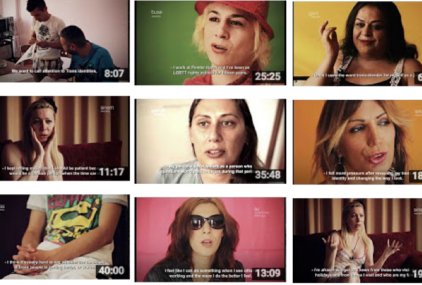
LGBTI Rights in Turkey and Recommendations
Originally published at Kaos GL The book Situation of LGBTI Rights in Turkey and Recommendations including the articles of six experts major in different disciplines

September in Brazil: retreats and resistance
September 2016 began under the government of Michel Temer, whose intermediary presidency governed Brazil from May to August while awaiting the results of the impeachment

Did an Anti-LGBT Panic Help Defeat Colombia’s Peace Deal?
Read the full article on American Quarterly When thousands of Colombians protested on August 10 to demand the resignation of the country’s openly gay education
Proudly trans in Turkey: a Gabrielle Le Roux Project
Feminist and queer art was part of the 13th International AWID Forum in Costa do Sauípe, Bahia Sep 8th-11th , 2016). Gabrielle Le Roux was

Key Trends and Tensions in sexual politics: a commentary
It also seemed to me that the general mood of pessimism came from the fact that most of the meeting’s participants were not digital natives, not exactly the ”globalized children”. This meant – again, with notable exceptions – that we still saw activism and policy advocacy

Women are being silenced in Turkey’s crackdown
From the start of the coup attempt by military officials on Friday through to the government’s crackdown in response, women’s voices have been almost entirely absent. Images
The ‘state’ and sexual politics: An interview with Gloria Careaga
On March 2016, we relaunched our Spanish website that (among other things) provides access to the Spanish translation of Queering the Public Sphere in Mexico
Brazil: The conservative restoration and sexual politics
It is not exactly to keep track of the Brazilian political development these days. On May 11th, the Brazilian Senate confirmed the admissibility of the impeachment of President Dilma Rousseff, which had been approved by the House on April 17th.
“Underage” sexuality: the tragic effect of draconian criminal laws
As underlined by Michel Foucault in his writings, in modern times, children and adolescent sexualities have been under close and systematic surveillance. While in the

Threats of retrocession in sexual and reproductive health policies in Brazil during the Zika epidemic
Brazil has one of the most restrictive legislations in the world on abortion. Since 1940, abortion is only allowed in Brazil in cases involving either risk to the woman’s life or rape, and in cases of fetal anencephaly. Yet abortion is common despite these legal restrictions.




